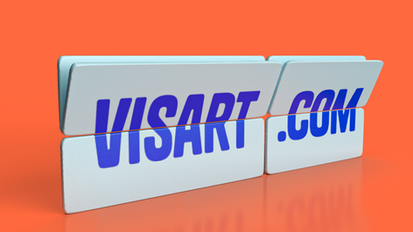Create a Banner About a Tech Conference Website Resources
Create a Banner About a Tech Conference Website Challenges
Create a Banner About a Tech Conference Website
In today’s digital age, having a website is essential for any business or individual looking to establish an online presence. Thankfully, there are a variety of platforms available that make building a website easier than ever before. Whether you’re a beginner looking to create a simple personal site or an experienced developer looking to build a complex e-commerce store, there are options for everyone. In this article, we’ll explore some of the best sites for building a website.

Create a Banner About a Tech Conference Website Challenges
Create a Banner About a Tech Conference Website
1. Type of Website
The type of website you want to build will have a significant impact on the cost. There are different types of websites, such as informational websites, e-commerce websites, portfolio websites, and more. Each type of website has its own unique requirements and features that can influence the overall cost of development. For example, an e-commerce website with features like online payment integration and inventory management will typically cost more to develop than a simple informational website.
2. Design
The design of a website plays a crucial role in its overall success. A well-designed website not only enhances the user experience but also reflects the brand’s identity and values. The cost of website design can vary depending on the complexity of the design, the number of pages, and the level of customization required. Custom-designed websites tend to cost more than using pre-made templates, but they offer a unique and tailored design that sets you apart from competitors.
3. Development
The development phase of a website involves turning the design into a functional website. This includes coding, testing, and optimizing the website for performance. The cost of development can vary based on various factors such as the technology stack used, the number of features and functionalities, and the level of customization required. Hiring skilled developers and programmers can also impact the overall cost of website development.
4. Content Management System (CMS)
A Content Management System (CMS) is a software that enables users to manage and update the content of their website without the need for technical expertise. Popular CMS platforms like WordPress, Drupal, and Joomla offer a range of features and customization options to build and maintain a website. The cost of a CMS can vary depending on the platform chosen and any additional plugins or extensions required for specific functionalities.
5. Domain and Hosting
Every website requires a domain name (e.g., www.yourwebsite.com) and web hosting to be accessible on the internet. The cost of a domain name can range from a few dollars to hundreds of dollars annually, depending on the domain extension and availability. Web hosting services also vary in price based on factors like storage space, bandwidth, security features, and customer support. It is essential to choose a reliable hosting provider that meets your website’s needs while staying within your budget.
6. Maintenance and Updates
Once your website is live, it will require ongoing maintenance and updates to ensure optimal performance and security. Regular updates to the CMS, plugins, and other software components are essential to protect against security threats and keep the website running smoothly. The cost of maintenance can vary depending on the complexity of the website, the level of support required, and any additional services like backups and security monitoring.
7. Additional Features and Functionality
Depending on your website’s goals and objectives, you may require additional features and functionality to enhance the user experience and achieve your business goals. These features can include social media integration, SEO optimization, email marketing tools, contact forms, and more. The cost of integrating these features will vary depending on the complexity and customization required.
What is a web hosting provider?
A web hosting provider is a company that offers the technology and services needed for a website to be accessible on the internet. When you sign up for web hosting services, the provider allocates space on a server for your website’s files and ensures that your website is up and running smoothly 24/7.
Why is choosing the right web hosting provider important?
Selecting the right web hosting provider is essential for the success of your website for several reasons:
1. Reliability: A reliable web hosting provider ensures that your website is always accessible to users. Downtime can have a negative impact on your website’s traffic and reputation, so it is crucial to choose a provider with a high uptime guarantee.
2. Speed: The speed at which your website loads can affect user experience and search engine rankings. A good web hosting provider will offer fast server speeds and optimal performance for your website.
3. Customer support: Having reliable customer support is crucial in case you encounter technical issues or need assistance with your website. A good web hosting provider should offer 24/7 customer support to address any problems quickly.
4. Security: Ensuring the security of your website and customer data is paramount. A reputable web hosting provider will offer robust security features such as SSL certificates, firewalls, and regular backups to protect your website from cyber threats.
What factors should you consider when choosing a web hosting provider?
When selecting a web hosting provider, there are several key factors to consider to ensure that you are making the right choice for your website:
1. Types of hosting: There are various types of hosting services available, including shared hosting, VPS hosting, dedicated hosting, and cloud hosting. Choose a hosting type that aligns with your website’s needs and traffic volume.
2. Uptime guarantee: Look for a web hosting provider that offers a high uptime guarantee to ensure that your website is always accessible to users. A 99.9% uptime guarantee is considered industry standard.
3. Server speed: The speed at which your website loads can impact user experience and search engine rankings. Choose a web hosting provider with fast server speeds to ensure optimal performance for your website.
4. Customer support: Having reliable customer support is crucial in case you encounter technical issues or need assistance with your website. Look for a web hosting provider that offers 24/7 customer support via phone, email, or live chat.
5. Security features: Ensure that the web hosting provider offers robust security features such as SSL certificates, firewalls, and regular backups to protect your website from cyber threats.
6. Scalability: Consider whether the web hosting provider offers scalability options in case your website grows and requires additional resources in the future.
7. Pricing: Compare pricing plans and features offered by different web hosting providers to find the best value for your budget. Look for hidden fees and consider any additional costs for domain registration, SSL certificates, or data backups.

How to Master Create a Banner About a Tech Conference Website
Create a Banner About a Tech Conference Website
In conclusion, choosing the right web hosting provider is essential for the success of your website. Consider the factors mentioned above when selecting a provider to ensure that your website is reliable, secure, and performs optimally for your users. Remember that investing in a reputable web hosting provider is an investment in the long-term success of your website.


